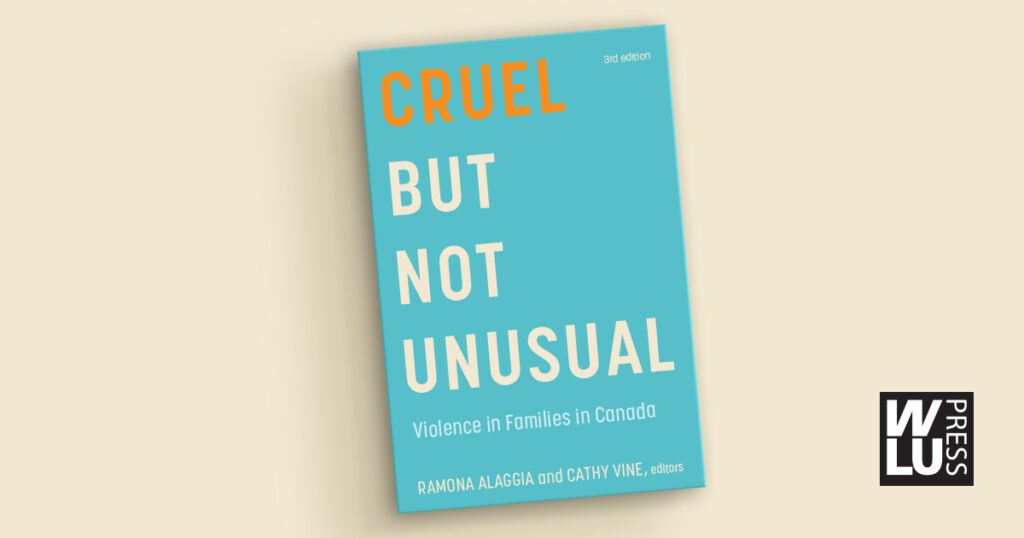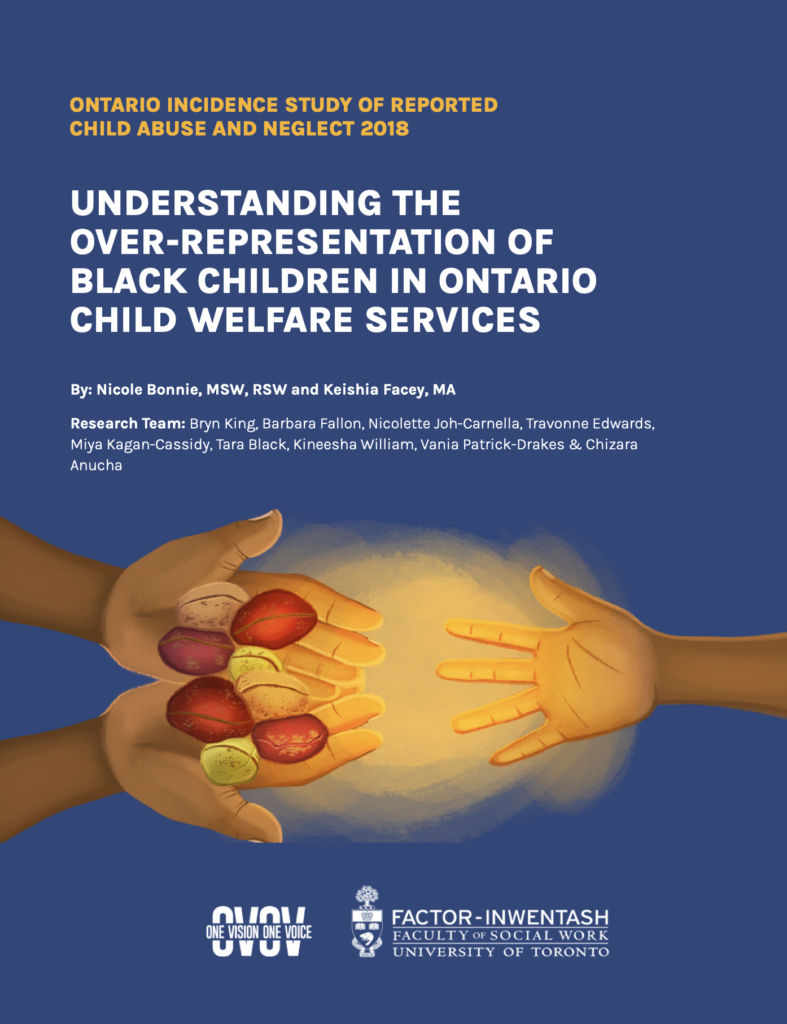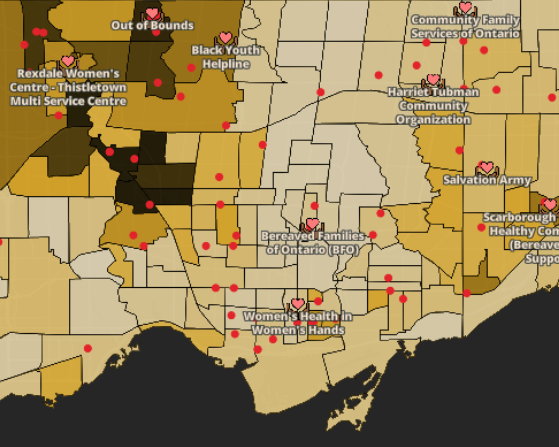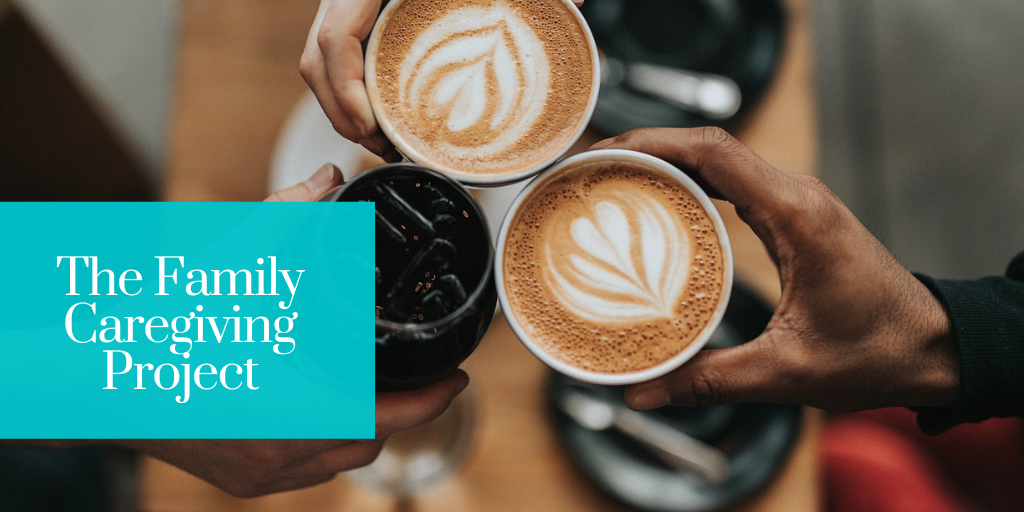Families affected by mental health need our help: Learn how the Family Caregiving Project is creating resources and advocating for stronger support
Categories: Charmaine Williams, Faculty, ResearchIn any given year, 1 in 5 Canadians experiences a mental illness and 1 in 2 adults over the age of 40 has a history of mental illness. For each person, there is a family doing their best to support and care for their loved one.
As Family Day in Ontario approaches, The Family Caregiving Project is drawing attention to the importance of providing mental health support to families as a whole. The multi-year research study led by Dean & Professor Charmaine Williams has been exploring the experiences and needs of families affected by mental illness across the province and developing resources for family caregivers and educators.
This month, it launched a petition to urge provincial leaders to create a strategy to increase family-centered services, increase access to mental health care for families, and support equitable distribution of funding by directing targeted resources to families who care for Ontarians living with serious and persistent mental illnesses.
“This is a critical time to make changes to address the urgent needs of families living with mental illness in Ontario,” says Williams. “All too often, the mental health care system engages with individuals and caregivers separately but has little to offer families as a whole. We need to ensure that entire family systems are supported, and that mental health services address not only a diversity of family experiences, but also the root causes of health inequities and disparities.”
> Click here to read and sign the petition to take action to improve the lives of families affected by mental illness.
The Family Caregiving Project also released a new Educators Guide to teach healthcare students and practitioners about issues that families caring for their members’ mental health have deemed important. The educator’s guide is broken down into 6 sections, representing six key themes. Each section includes short video clips from interviews with a variety of people who are part of families affected by mental illness. Accompanying each video clip are questions for discussion. The Educators Guide, available on The Family Caregiving Project’s website, is free and open to all.
The Project’s researchers and coordinators have also added some new educational materials to its resources. These include new worksheets, which can be used by any caregiving family to explore family member care needs and helpful resources, and an advocacy toolkit, for those who would like to contact their provincial government representatives directly and show their support on social media.
Visit: The Family Caregiving Project’s website
Past FIFSW stories related to families
 |
Vivian Leung’s research on immigration and anti-Asian racism is supporting families and social work practitionersBefore starting her PhD, Leung worked on a large-scale research project in Hong Kong that explored parenting experiences over five generations. ‘Analyzing hundreds of interviews sparked my interest in exploring a related subject in my PhD,’ she says. |
 |
Breaking down silos and building connections towards meaningful change for immigrant families in the child welfare systemShaoli Choudhury works with women and children who have experienced domestic violence, and she knows how difficult it can be for them when the child welfare system becomes involved in their lives. But if those families are also newcomers to Canada, their stress is often compounded. |
 |
Cruel But Not Unusual, co-edited by Ramona Alaggia, provides an updated look at violence in families in CanadaRamona Alaggia is the Margaret and Wallace McCain Family Chair in Child and Family. Her research focuses on gender and violence; trauma and resilience, sexual violence disclosures and mental health effects; intimate partner violence and structural barriers; and promoting ways to foster resilience processes in children, youth and adults exposed to violence. |
 |
Social work professors collaborate with community organizations to explore experiences of anti-Asian racism and develop strategies to address the crisisA frequent theme in the focus groups was the relative lack of openness around anti-Asian racism in Asian families. “Parents are often uncomfortable speaking about it because they don’t feel equipped, or they may subscribe to cultural beliefs about keeping your head down and not making trouble,” says Fang, the Factor-Inwentash Chair in Children’s Mental Health. “If they’re immigrants, they also could be afraid to rock the boat.” Focus groups with Chinese parents are currently underway to gain more insight into these barriers. |
 |
New report reveals the reality of anti-Black racism in Ontario child welfare service deliveryBlack families in Ontario are more than twice as likely as white families to be referred to and investigated by child welfare agencies, according to a new groundbreaking report released by the One Vision One Voice (OVOV) program in collaboration with the University of Toronto’s Factor-Inwentash Faculty of Social Work (FIFSW). |
 |
One in ten adults aged 65 and over experience some form of elder abuse each year in Canada‘Our findings may actually underestimate the true population prevalence because older adults tend to underreport personal problems such as family violence,’ said Burnes. One of the key findings from this study was that older adults who experienced higher levels of child maltreatment were more likely to become victims of elder abuse later in life. |
 |
The child welfare system fails to understand the context of First Nations communities, report Barbara Fallon and Cindy Blackstock at inquestWith encyclopedic memory, Blackstock walked the jury through the history of residential schools, which were created to remove Indigenous children from their families and separate them from their culture, and how that system directly led into ongoing child welfare practices. |
 |
A new report and interactive map from The CRIB illustrates the disproportionate prevalence of homicides in predominately Black neighbourhoods in TorontoThe CRIB’s Homicide Tracker depicts the disproportionate prevalence of homicide in ACB neighbourhoods across Toronto and illustrates the availability of resources to assist family members and friends of murdered victims in surviving the aftermath of unthinkable tragedy. Unfortunately, compared to downtown neighbourhoods, Black survivors in the Northwestern neighbourhoods have less access to grief and bereavement supports. |
 |
Co-parenting during COVID-19: Professor Michael Saini draws on virtual solutions to connect children and parents — and prevent escalating legal disputesTo better understand why some families thrive under physical distancing conditions and some deteriorate, Saini — co-director of the Combined JD/MSW Program at the Factor-Inwentash Faculty of Social Work and Faculty of Law — and a colleague at Smith College launched a study on co-parenting during the pandemic. |
